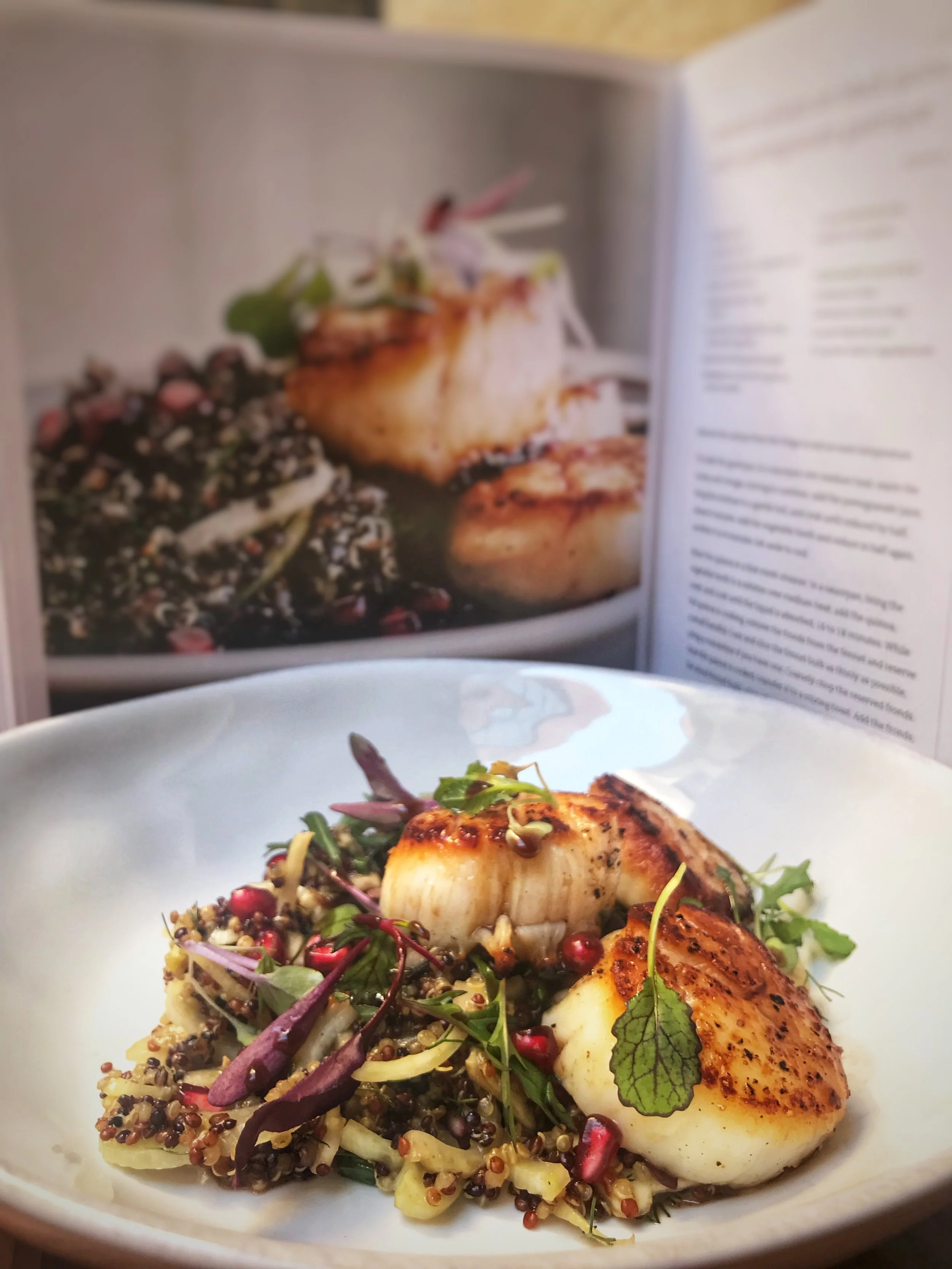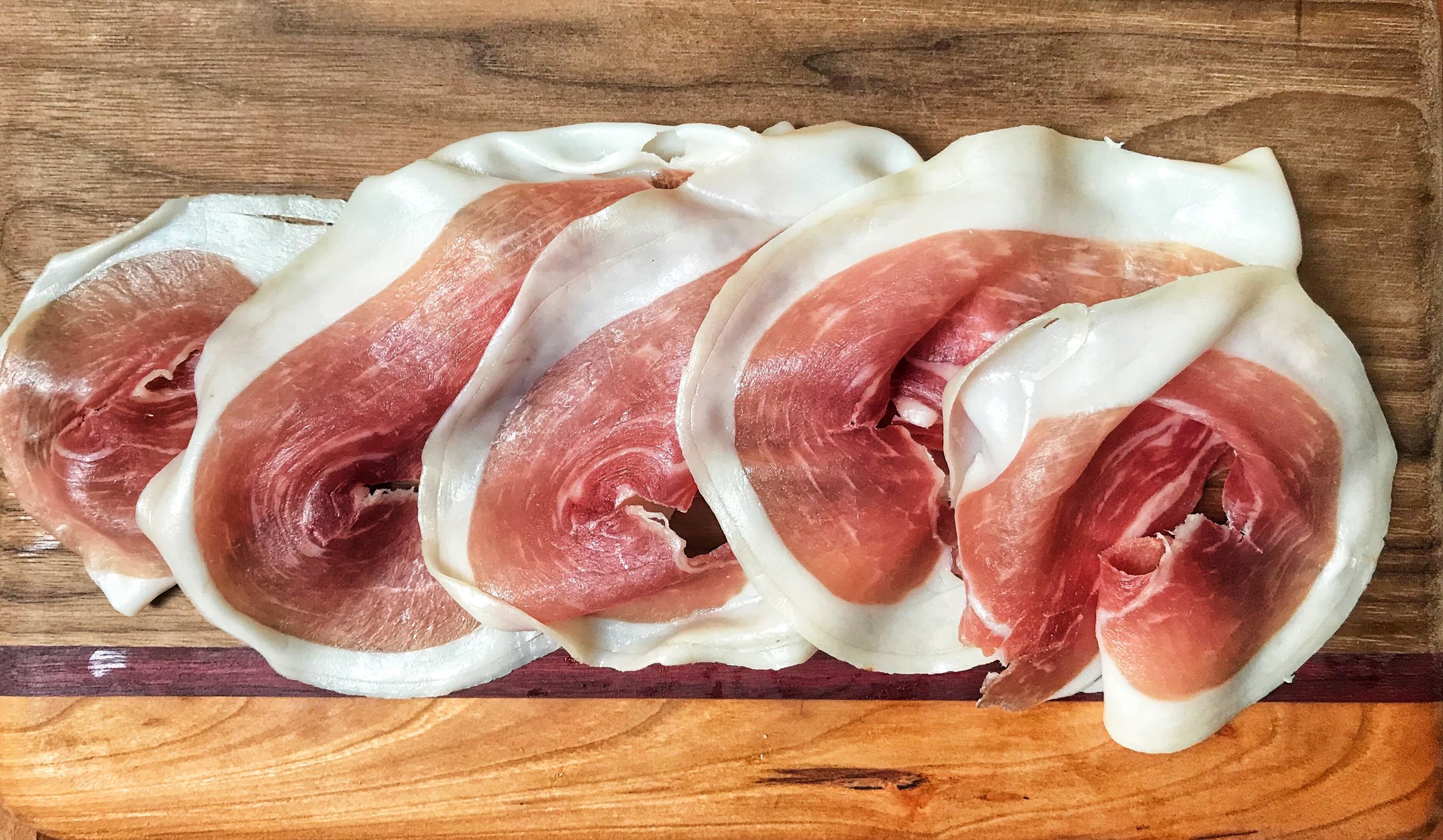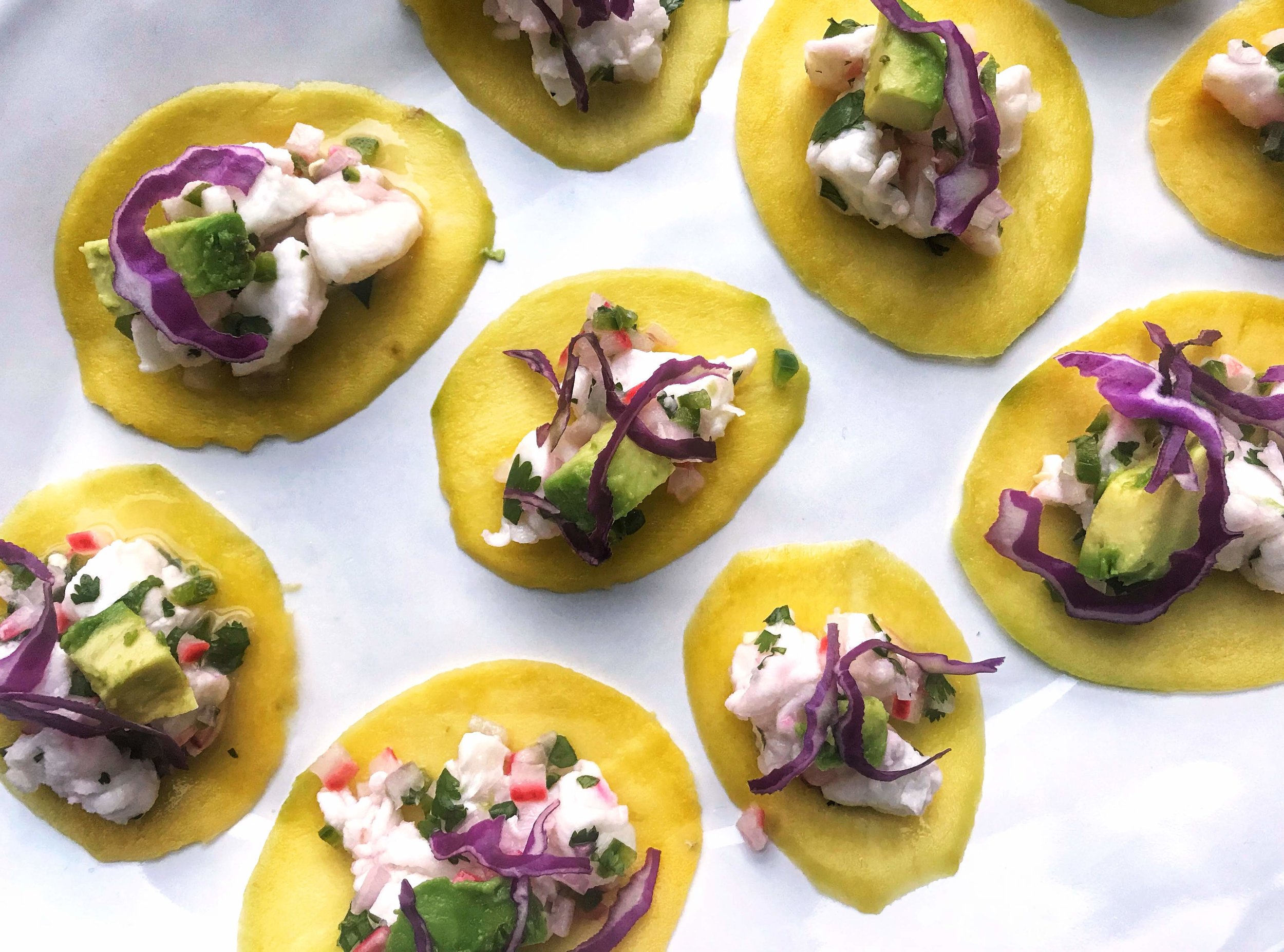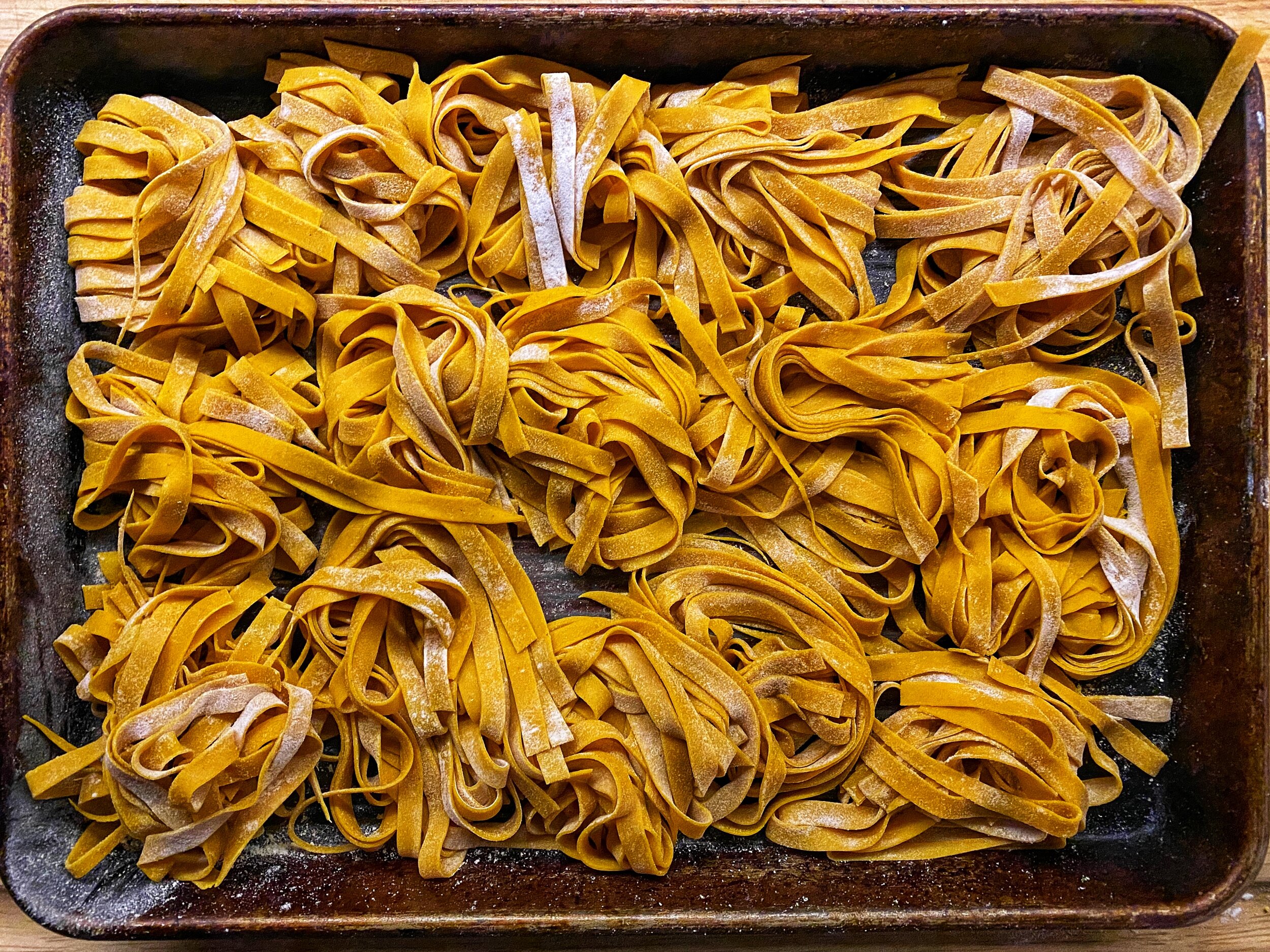Sprouted Kitchen - Scallops & Quinoa
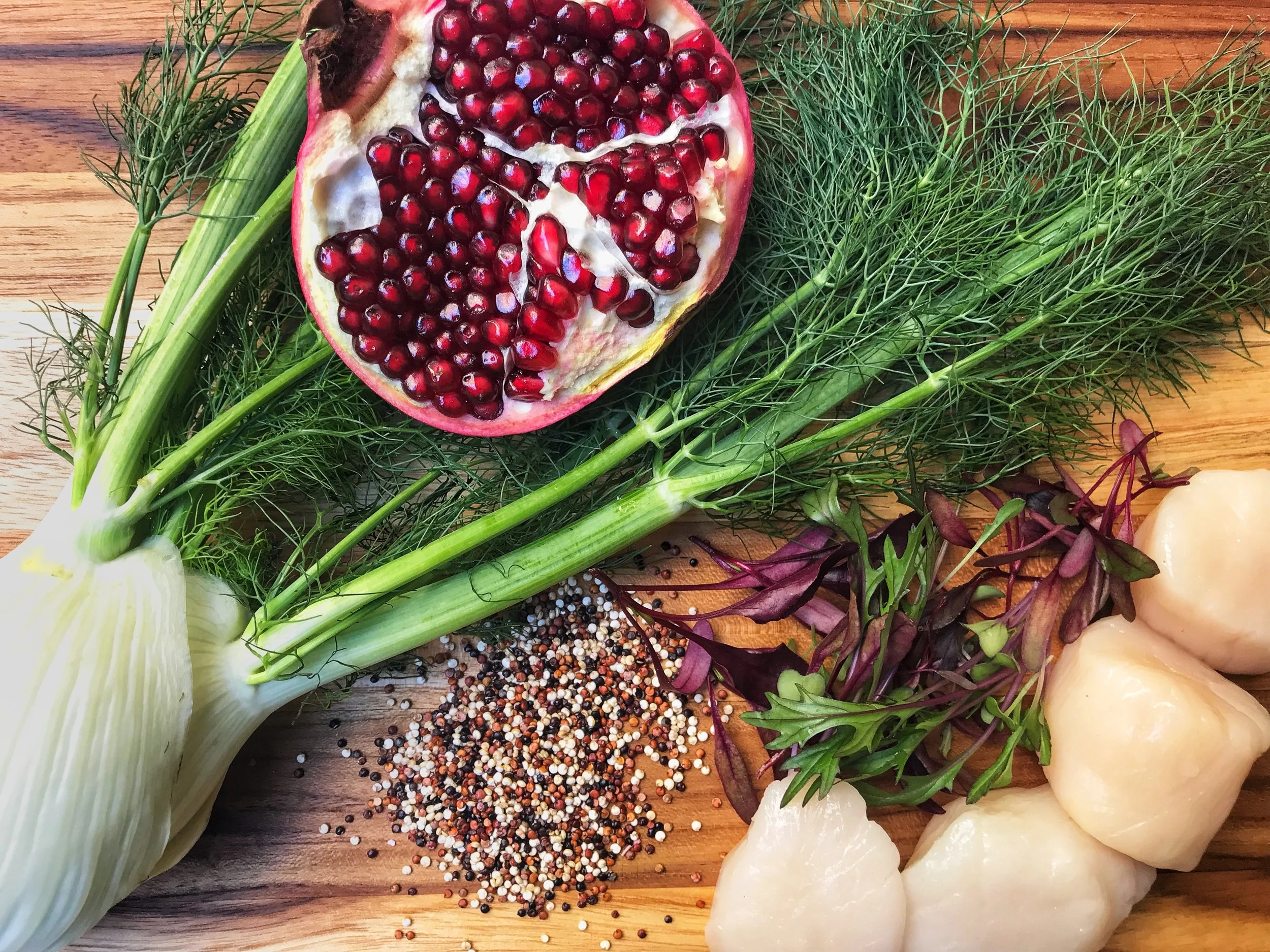
“Sprouted Kitchen was my first cooking blog obsession.”
I started following Sara Forte and her blog Sprouted Kitchen back in 2011. It was my first cooking blog obsession, and obsessed with it I was. I would habitually check my first free moment at work, and I would never be disappointed when a new recipe would be posted.
Asian Ahi Salad - the main meal during my wedding diet
Roasted Zucchini, Black Bean + Goat Cheese Enchiladas - my go-to pot luck meal
Dark Chocolate + Ginger Flatbreads - one year's homemade holiday gifts for my family and friends
The photography is AAAAAmazing. I even have a Sprouted Kitchen original framed in my kitchen. (Thanks again Mom for an extremely thoughtful Christmas present.) Sara’s recipes are simple, beautiful and utterly delicious. And when she announced she would be writing a cookbook, I was ecstatic. I carried the book around for an entire weekend until I could finish reading each recipe.
I would not classify myself as a naturally healthy eater, but once I found myself sitting at a desk job all day, I realized I couldn’t eat pizza or mac and cheese for every meal. Reading Sprouted Kitchen was my first venture into the world of healthy cooking. It showed me that veggies could be the main course, and eating healthy was more than just boiled chicken breasts and steamed vegetables. When I have friends looking to go gluten-free, vegan or vegetarian, I always recommended they check out Sara’s blog and book.
When I got the idea for this blog, I knew Sprouted Kitchen had to be the first. I’ve cooked quite a few recipes from her book, but this one will be a first.
Scallops - a seafood I would rather eat raw - but a quick sear on both sides keeps them from getting rubbery and overcooked. Get the best and freshest you can find, preferably the same day you plan on cooking them. If scallops aren’t your thaaang (or finding fresh ones seems like a task you don't feel like undertaking), a few roasted shrimp would be a great substitute.
I don’t get super jazzed about cooking - or eating - quinoa, so I try and do everything I can to make it a bit more enjoyable. The key here is homemade stock. It has sooo more depth and flavor than store-bought versions and is a great ingredient to keep in your freezer. It also adds great flavor to the gastrique in this recipe. So if you need an excuse to make some stock, this is your chance!! Check out how I make my stock extra delicious.
For whatever reason, finding black quinoa in west Michigan is impossible, so I opted for tri-color. Maybe not as aesthetically pleasing, but it’s just as quinoa-y.
Depending on the time of year, I can find pomegranate seeds in the refrigerated produce section of my grocery store. But I enjoy the mindless and repetitive task of seeding a pomegranate myself. Unless you are looking to add some stylish red splatter to your clothing, the trick is seeding it in a big bowl of water. I score the outside of the pomegranate around the widest parts, then gently break in pieces while holding the fruit under water. If you break apart the segments where they naturally come together, you will expose the seeds and be able to gently pull them out from the pits. It takes a few minutes, but it’s a nice and calming task. If that doesn’t make sense to you, use the Google.
Sara mentions in the book that this is a great recipe to serve to guests, and I would agree! Scallops are way easier to cook than you might think and look super fancy with a great sear. The quinoa and gastrique mixture are totally okay to make ahead and serve room-temp. So impress your friends and serve them this!
Sara Forte's Seared Scallops on Black Quinoa with Pomegranate Gastrique
Serves 4
16 large scallops
1 cup black quinoa
1½ cups low-sodium vegetable broth
1 medium fennel bulb
2 tablespoons extra-virgin olive oil
¼ cup finely chopped fresh chives, plus more for garnish
Sea salt and freshly ground pepper
2 tablespoons coconut oil or ghee, or more as needed
1 cup pomegranate seeds
Handful of microgreens
Pomegranate gastrique:
1 tablespoon honey
2 tablespoons sherry vinegar
1 cup pomegranate juice
¾ cup low-sodium vegetable broth
Instructions:
Remove the scallops from the fridge to rest at room temperature.
To make the gastrique, in a saucepan over medium heat, warm the honey and vinegar, stirring to combine. Add the pomegranate juice, bring the mixture to a gentle boil, and cook until reduced by half, about 8 minutes. Add the vegetable broth and reduce in half again, another 6 to 8 minutes. Set aside to cool.
Rinse the quinoa in a fine-mesh strainer. In a saucepan, bring the vegetable broth to a simmer over medium heat, add the quinoa, cover, and cook until the liquid is absorbed, 16 to 18 minutes. While the quinoa is cooking, remove the fronds from the fennel and reserve a small handful. Core and slice the fennel bulb as thinly as possible, using a mandoline if you have one. Coarsely chop the reserved fronds. Once the quinoa is cooked, transfer it to a mixing bowl. Add the fronds, the sliced fennel bulb, olive oil, and chives to the quinoa and stir.
Pat the scallops completely dry and sprinkle all sides with salt and pepper. Heat the coconut oil in a large frying pan over medium-high heat and add as many scallops as will fit in the pan while leaving 1 to 2 inches between them. Cook for 4 minutes, flip, and cook on the other side until a crust has formed and the scallop starts to pull away from the pan, about 2 to 3 minutes more, depending on the size of the scallops. The key to getting a good crust on the scallops is to make sure they are close to room temperature and completely dry when they hit the hot pan. Don’t touch them besides flipping them once. There is no need to stir them around; that’s when things get messy. Repeat with the remaining scallops, adding a bit more coconut oil to the pan if it all has been absorbed.
Stir the pomegranate seeds and microgreens into the quinoa mixture, adding a few pinches of salt and pepper to taste.
To serve, divide the quinoa salad and scallops among four plates and drizzle each serving with the gastrique. Garnish with chives and serve immediately.
Source: The sprouted kitchen : a tastier take on whole food / by Sara Forte ; photography by Hugh Forte


